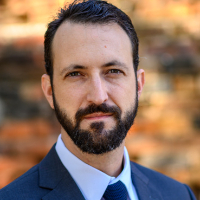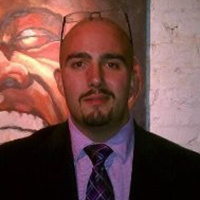 Arabi Felony Lawyers, Louisiana
Arabi Felony Lawyers, Louisiana
Sponsored Law Firm
-
 x
x

Click For More Info:
-
Babcock Trial Lawyers
10101 Siegen Ln #3-C Baton Rouge, LA 70810» view mapCriminal Defense We Want Your Injury Claim PAID NOW!
At Babcock Trial Lawyers, we work for our clients, maintaining our reputation of excellence as criminal defense & personal injury lawyers in Baton Rouge.
225-500-5000
Not enough matches for Arabi Felony lawyer.
Below are all Arabi Criminal lawyers.
Sponsored Lawyers
1-10 of 32 matches
Business, Criminal, Lawsuit & Dispute, Civil & Human Rights, Real Estate
The Law Office of William Most focuses on addressing civil rights and environmental issues, but has also handled matters involving land use, disability rights, drafting of contracts, trust litigation, etc.
(more)Criminal, Felony, Misdemeanor, White Collar Crime, Juvenile Law
Criminal Court is a place where someone's life can be irrevocably changed for the worse. I have born witness to incredible injustice being done to innocent people. I have also seen a person sacrificed and thrown away by the system without being given any chance at redemption. Seeing these stories play out is what drives me as a defense attorney, to protect people from being crushed by the system.
(more)Criminal, Car Accident, Felony, Accident & Injury, DUI-DWI
I am a New Orleans attorney fighting hard to protect my clients' rights, property, and liberty through experience, skill, and knowledge of the Louisiana judicial system.
(more)Consumer Rights, Business, Accident & Injury, Civil Rights, Criminal
Harrece Gassery is an attorney licensed to practice in the state of Louisiana. His interests include Criminal Defense, Criminal Appeals, Civil Rights Violations, Personal Injury, Social Security Disability and Veterans Benefits Claims. As a law student he completed externships at the Innocence Project and East Baton Rouge Public Defender’s office. He was also a member of the Public Interest Law Society, Black Law Student Association, and Christian Legal Society. He is a man of faith, and it is this faith that drives his want to help those in need and work zealously on their behalf.
(more)


 Stephen Babcock Baton Rouge, LA
Stephen Babcock Baton Rouge, LA Practice AreasExpertise
Practice AreasExpertise




